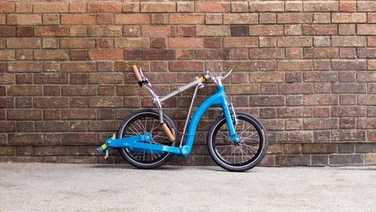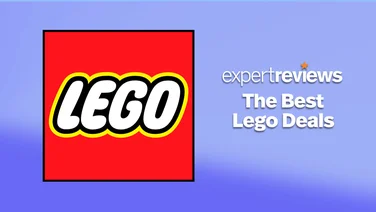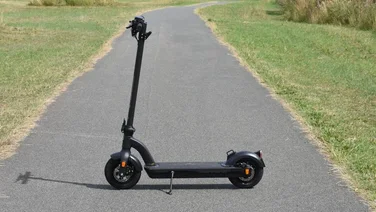To help us provide you with free impartial advice, we may earn a commission if you buy through links on our site. Learn more








- Smarter than Cozmo
- Better camera
- More autonomous
- Expensive
- Still very much a toy
Here’s a little nugget of information that might surprise you. According to the ecommerce analysts at One Click Retail, Anki’s cute Cozmo robot was the best- selling toy in the US two years in a row and the best-selling toy on Amazon in the UK in 2017. The new Vector is a smarter version of that robot; it’s more fully featured and cleverer in pretty much every way and Anki is hoping it can build on Cozmo’s success.
Vector looks slightly different to Cozmo – he’s a moodier grey compared to Cozmo’s more innocent gloss white – but, physically, the resemblance is clear. He has an OLED display upfront used to display facial expressions and interact with his owners.
Articulating arms flank the robot and join up at the front allowing Vector to move and lift items like a tiny forklift truck, while a pair of tiny rubber tank tracks provide the means for Vector to bimble around.
Anki Vector: What you need to know
Ostensibly, Vector can perform a similar manner of tasks to Cozmo, too. He can recognise faces and animals, play games and manipulate objects with his spindly arms. He also has facial expressions and body motions developed with the help of former Pixar animators, helping him to be just as charming as his older brother.
Yet Vector has plenty of significant upgrades over Cozmo, the most significant of which is improved autonomy. Courtesy of a 1.2GHz Qualcomm Snapdragon 210 chip, Vector’s smarts are now all onboard and these drive his major new feature: voice recognition. Think of Vector as Alexa on wheels and you’ll get the general idea – he’s a cute robotic companion that can respond to your voice and keep you company while you get on with your day.
Anki Vector: Price and competition
Attempting to come up with a list of alternatives to Vector is a bit tricky, because aside from his less capable older sibling, he’s unique. There are other robots on the market targeting this price sector – Vector is £200 – but most are very different and none quite have Vector’s anthropomorphic charm, or his face and voice recognition.
Sphero’s range of ball-shaped robots, in particular the recently launched Sphero Bolt, is probably the closest you’re going to get. They’re not autonomous like Vector, though, and are principally aimed at helping kids to learn to code through play.
Anki Vector: Design and key features
Vector’s new quad-microphone array and always-on Wi-Fi connectivity are at the heart of everything good about Vector. He’s basically your digital assistant made real. A tiny, robotic Alexa who can set up alarms and reminders, and answer questions about the weather or general trivia – all delivered in cute, slightly comic robotic tones.
You can interact with Vector, soothing him with a stroke of your finger or gee him up with a fist bump. You can even play Blackjack with him just by using your voice and, if he loses, he gets grumpy.
READ NEXT: Sphero Bolt review: A clever robot with an educational bent
Vector has other upgrades, too, aside from voice control. He has a higher-resolution camera, boosted from VGA to 1,920 x 1,080, which helps to improve facial recognition and take better-quality photos.
He’s now also equipped with a single-point, time-of-flight laser sensor, which enables much more accurate mapping of his surroundings so that he can explore more effectively.








And the integrated Wi-Fi on the Snapdragon chip enables autonomous updates, too. In fact, you never need to use your phone to control Vector if you don’t want to. He can be entirely independent if you want him to be. He even charges himself automatically by parking on his charging base when his battery is low, just like a tiny robot vacuum.
And yet, despite all of this, Vector is still very much in the same vein as Cozmo. He’s characterful, yes, and he can do much more. The voice recognition is effective (if you speak clearly), and it’s nice having him rove around the desk like some odd technological kitten. It sounds odd, but I grew fond of Vector during our time together.
His facial expressions lend what might otherwise have been a fairly insipid robotic toy some character and, yes, I quite like the idea of a digital assistant that responds to questions about the weather not merely with a bland “the temperature in London today will reach a high of ten degrees and a low of three degrees” but who shivers when he does so and puts on a sad face.








At the end of the day, though, Vector is still fairly limited. He can’t play you music or radio via Bluetooth like your smart speakers can and he can’t help you with a summary of your day or turn your smart lights on and off.
His abilities are still very much limited in that direction, although I truly which they weren’t. I love the idea of a robot that can do everything Alexa or Siri or Google Assistant can – that, ultimately, is where digital assistants will get to I think, but Vector isn’t there yet.
Anki Vector review: Verdict
With such strong sales for Cozmo, there’s clearly a market for toys of this type, though, and the Vector looks to continue in the same vein but with more features and a far smarter outlook. Though he looks the same, Vector is an upgrade on Cozmo on all fronts but whether he’s for you comes down to if you think it’s worth paying £200 for a robot that is occasionally useful but, mostly, a cute kitten replacement.
Perhaps if Anki had built in some educational features, as Sphero has with its range of robots, I’d be all for it. If it had endowed it with a broader array of smart assistant features, I’d be more inclined to recommend it. As it is, though, it’s not much more than an expensive, albeit brilliantly clever and entertaining, toy.







